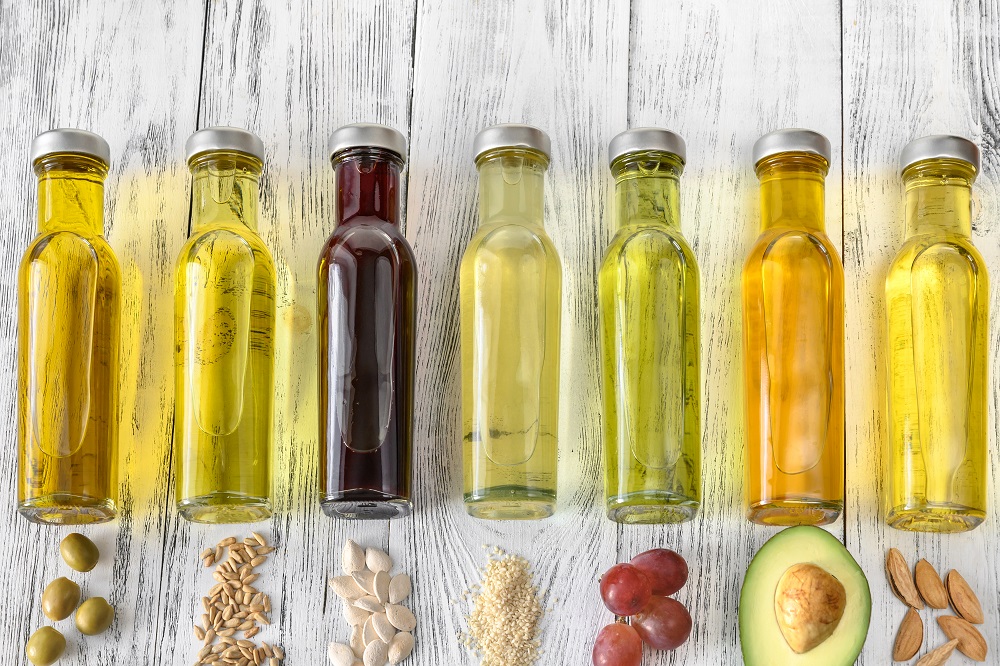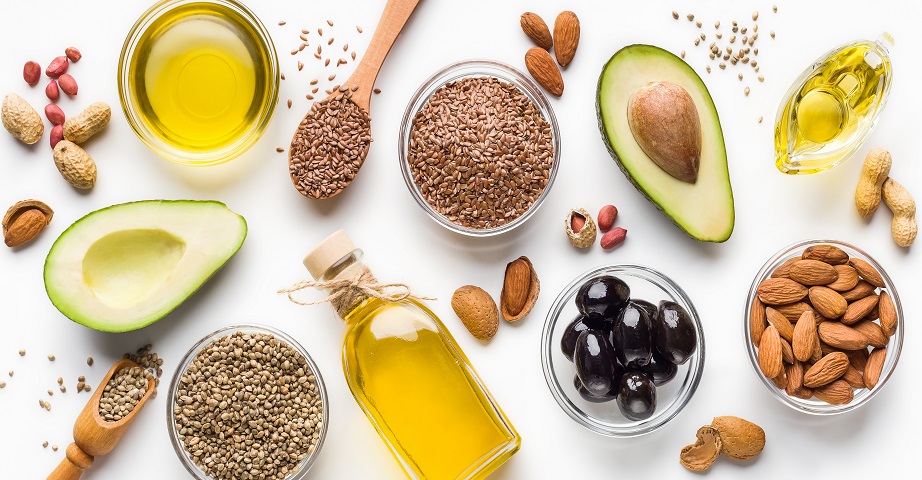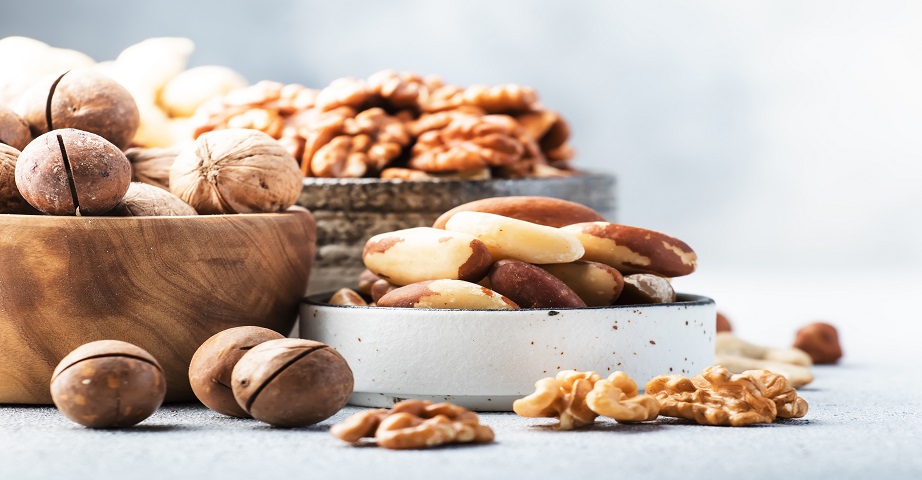Phytosterols - the importance and impact of plant sterols on the human body

Phytosterols are plant sterols, which are naturally occurring compounds that are analogues of cholesterol. They can have a beneficial effect on the human body, reducing the level of cholesterol in the blood, and thus contributing to the reduction of the risk of developing cardiovascular diseases.
The phytosterols occur naturally in commonly used foods, but they are also a component of functional foods. The plant sterols can also be found in the form of dietary supplements. When is it worth using the phytosterols? What properties can they exhibit? Which products are considered the best sources of the plant sterols?
What are phytosterols?
To understand what phytosterols are, it is worth first finding out what sterols are actually.
Sterols are organic chemical compounds that are derivatives of steroids and are included in the group of alcohols. It is a diverse group of compounds that combine only two features - a typical carbon skeleton and a hydroxyl group in the third position.
Due to the origin of the sterols can be distinguished:
- animal sterols - zoosterols, such as cholesterol or lanosterol,
- plant sterols - phytosterols, such as beta-sitosterol, campesterol,
- sterols derived from fungi - mycosterols, such as ergosterol,
- synthetic sterols, which are not found in nature and are produced artificially.
Thus, it is easy to see that the phytosterols are compounds of plant origin, also called plant sterols, which naturally occur in nature. They are exogenous substances that are not produced in the human body, so they can be delivered to the body from the outside, along with food.
The phytosterols are one of the main components of plant cell membranes, which are responsible for hardening their structure. The plant sterols include over 200 different compounds. They are all analogues of cholesterol, because in terms of structure, they resemble its molecule. However, they differ in the degree of saturation and configuration of the chain.
Most often, the phytosterols are divided into two groups, such as:
- plant sterols - have unsaturated bonds in the molecule,
- plant stanols - have only saturated bonds in the molecule.
Much more often the plant sterols can be found among the components of plants, while the stanols account for only 10% of all the phytosterols. However, the name "phytosterols" includes both stanols and sterols and their esterified forms.
Phytosterols and cholesterol
The phytosterols, due to their similarity to cholesterol, can have a large impact on the human body, which is due to the fact that the plant sterols compete with the cholesterol during the absorption process.
Micelles are molecules that are a means of transport for the sterols, allowing them to enter the intestine. The plant phytosterols, although they enter the human body only to a limited extent, have an advantage over the cholesterol, which means that thanks to the phytosterols, the absorption of total cholesterol from the gastrointestinal tract can be reduced by up to 45%.
The phytosterols can inhibit both the absorption of endogenous cholesterol, occurring naturally in the human body, and exogenous - supplied with food. In addition, the plant sterols can cause the excretion of unbound, free cholesterol from the digestive system along with the faeces. Interestingly, the phytosterols after fulfilling their function in the body are also excreted from the body.
Health-promoting properties of plant sterols and their impact on the human body
The phytosterols, in addition to inhibiting cholesterol absorption, may also increase its excretion from cells of the intestinal villi, called enterocytes.
Consumption of the plant sterols may help reduce the concentration of total cholesterol, but also its LDL fraction. The beneficial effect of the compounds on the human body in the conducted studies was observed at a daily dose of 1.5-3.0 g of the phytosterols. Interestingly, the use of higher doses of the plant sterols did not increase the therapeutic effect of the compounds.
As if that were not enough, the phytosterols can also limit the development of atherosclerotic lesions, as well as reduce the risk of inflammation in the body, limiting the release of the inflammatory factor, or prostaglandins. They can also have antioxidant and antibacterial properties.
The phytosterols can be helpful in the prevention of cardiovascular diseases, as they can contribute to a reduction in total cholesterol by about 10% and to a reduction in LDL cholesterol by approximately 15%. In addition, they can alleviate ailments associated with joint degeneration, as well as support the work of the immune system, intensifying immune processes. Recent data also suggests that the phytosterols may be helpful in the treatment of diabetes, contributing to the regulation of glucose metabolism.
Phytosterols in cosmetics
The phytosterols have also been used in cosmetics. The plant sterols can strengthen the epidermal barrier, inhibit water loss, and also exhibit moisturizing and protective properties. They can also improve the condition of the skin, showing a regenerating effect, and thanks to their anti-inflammatory properties they can be a valuable support in various types of dermatological diseases.
The phytosterols are also appreciated for their ability to stimulate the synthesis of collagen, the main support protein of the skin, which is responsible for its tension. In addition, the compounds may limit the decomposition of elastin and soothe irritation.

In what products are phytosterols found? - Sources of phytosterols
As you already know, the phytosterols are components of plant origin. They occur in all plant tissues, but the largest amounts of the sterols can be found in vegetable oils such as.:
- rice bran oil,
- rapeseed oil,
- olive oil,
- grape seed oil,
- sesame oil,
- sunflower oil.
In addition, the phytosterols are present in foods such as:
- walnuts,
- peanuts,
- sesame,
- rice bran,
- almonds,
- sunflower seeds,
- wheat germ,
- legumes,
- cereal preparations.
Small amounts of the plant phytosterols can also be found in some vegetables such as beans, corn, tomatoes, Brussels sprouts or broccoli, as well as in fruits such as pineapple, apple, bananas or figs.
Demand for phytosterols
According to the results of scientific studies, to lower the concentration of total cholesterol in the blood serum, it is necessary to consume 1.5-3.0 g of the phytosterols per day. However, the average European diet provides the body with about 250-400 mg of the plant sterols every day, while the vegan diet is little more, because only 500 mg.
For this reason, functional food enriched in the phytosterols can be found more and more often on the market. Most often, the plant sterols are enriched with products such as margarines, milk drinks, yoghurts or ripened cheeses.
To increase the intake of the phytosterols, it may also be a good solution to increase the share of products considered as valuable sources of them in the daily diet, as well as supplementing the menu with dietary supplements, in which composition can be found the plant sterols.
Phytosterols - when is it worth using them?
The phytosterols may prove to be a valuable support among people struggling with lipid disorders. They can also be part of the diet to prevent cardiovascular diseases and be helpful among people with familial hypercholesterolemia, as well as among people, which, despite taking medications, can not reach the desired level of cholesterol in the blood.

Phytosterols - side effects and contraindications
The phytosterols are considered safe compounds and, in accordance with the guidelines of the European Commission, may be a food additive. But even phytosterols that have a positive effect on the body, consumed in excess, can negatively affect the work of the whole system.
Studies indicate that the sterols can not only impair the absorption of cholesterol, but also some fat-soluble compounds. Excessive consumption of the phytosterols can cause a decrease in the level of beta-carotene by about 25%, as well as vitamin E by approximately 8%. When increasing the consumption of the phytosterols, it may also be a good solution to increase the supply of ADEK vitamins.
The plant sterols should not be used by people struggling with a rare disease, which is phytosterolemia. Among people suffering from this disease, the excretion of the phytosterols from the body is limited, which contributes to an increase in their concentration in the body. Thus, the risk of ischemic heart disease and heart attack increases.
Our bestsellers
Bibliography:
- https://pubmed.ncbi.nlm.nih.gov/34444970/
- https://pubmed.ncbi.nlm.nih.gov/32882583/
- https://wydawnictwo.pttz.org/magazine-archive/aneta-kopec-estera-nowacka-ewa-piatkowska-teresa-leszczynska-charakterystyka-i-prozdrowotne-wlasciwosci-steroli-roslinnych/
- https://pubmed.ncbi.nlm.nih.gov/35056839/
- https://pubmed.ncbi.nlm.nih.gov/34444970/

